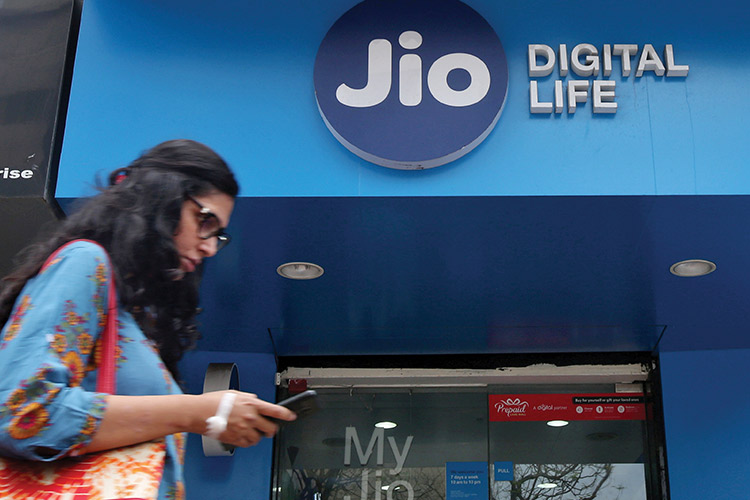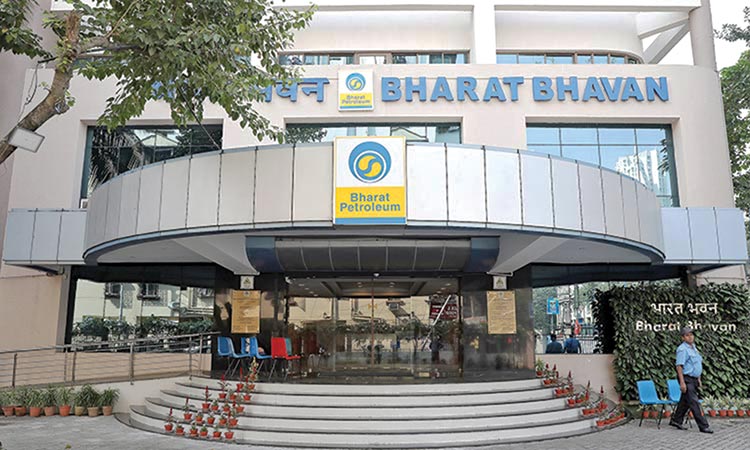India’s privatisation plan to end cross-holding in oil PSUs

The regional head office of Bharat Petroleum Corporation in Kolkata. Reuters
Official sources said that that all oil sector public sector undertakings (PSUs) would be asked to exit from their investments made in equity shares of other state-owned entities. This could be done in phases, depending on the market conditions, so that the shares get maximum valuation.
The cross-holding structure among oil PSUs was built in the late 1990s as the government sold its shares in Oil India Limited (OIL), Oil and Natural Gas Corporation (ONGC), Gas Authority of India Limited (GAIL) and Indian Oil Corporation (IOC) in a bid to raise funds.
Consequently, while GAIL and IOC hold 7.84 and 2.45 per cent stake, respectively, in ONGC, ONGC and OIL hold 14.20 and 5.16 per cent stake, respectively, in IOC. Also, IOC and ONGC hold 2.44 and 4.87 per cent stake, respectively, in GAIL India, and BPCL (2.42 per cent), HPCL (2.47 per cent) and IOC (4.93 per cent) together own equity partial equity in OIL.
Estimates suggest that if the government divests its stake by taking the entire proceeds from sale of shares cross-held by oil PSUs, it could mobilise upwards of Rs40,000-Rs50,000 crore. However, it is likely that companies may plough back the money raised through equity sale to the government by declaring a special dividend.
“The government wants to end cross-holding in the oil sector as its consolidation and privatisation roadmap would create two to three large integrated entities. This would create a situation where cross-holding could be seen as anti-competitive and aiding conflict of interest,” said one of the source quoted above.
Analysts also believe that offloading listed investments could make sense even for strategic investors looking to buy into Bharat Petroleum Corporation Limited (BPCL) as it would reduce the risk of any future government intervention. Since a listed investment is as good as cash equivalent, it can be sold before disinvestment and the proceeds given as one-time special dividend. Under the cross-holding structure, BPCL continues to hold 2.47 per cent stake worth around Rs400 crore in OIL. To its advantage, BPCL has no cross-holding by any other PSUs that could have created problems in its valuation and sale to a strategic investor. Similarly, HPCL also does not have a cross-holding structure, one reason why its acquisition by ONGC last year proceeded smoothly.
According to analysts, “other income” as a percentage of profit before tax of the oil marketing companies ranged between 13 per cent and 28 per cent last fiscal. And this high level of income could impact valuation of companies as markets usually discounts 20-30 per cent as holding company discount to the listed investment.
Sources said that the Oil Ministry has already indicated to ONGC to exit from its investments in oil refiner and marketer IOC and gas transportation utility GAIL India, while the other two would also sell all their equity in the upstream company.
“Each oil PSU has to take a call when the time is right to offload stakes held in others as cross-holding investments are dividend paying and exits should only be made at the right value and when market conditions are stable. Hopefully this call could be exercised in the last quarter of current fiscal,” said a top official of a PSU oil company. It is not that companies have made major gains from cross-holdings. In fact, with volatility in the oil market and the government’s decision to seek OMCs take up some burden to soften the rise in petrol and diesel prices have taken a toll on OMC shares in the past and has thus reduced the value of their investments.
Meanwhile, Moody’s Investors Service said it had placed state-run Bharat Petroleum Corporation rating on review for downgrade after the government decided to privatise the country’s company.
“The review for downgrade follows the government of India’s (Baa2 negative) decision to sell its entire 53.29 per cent stake in BPCL and to transfer management control of the company to a strategic buyer,” Moody’s said in a report.
The report further said it assumes that BPCL’s status as a government owned entity in India will continue until at least the conclusion of the proposed sale.
The sale by the government will also trigger a change of control in some of BPCL’s bonds, which will require the company to redeem its bonds within 45 days of the change of control being triggered, according to Moody’s.
Indo-Asian News Service







